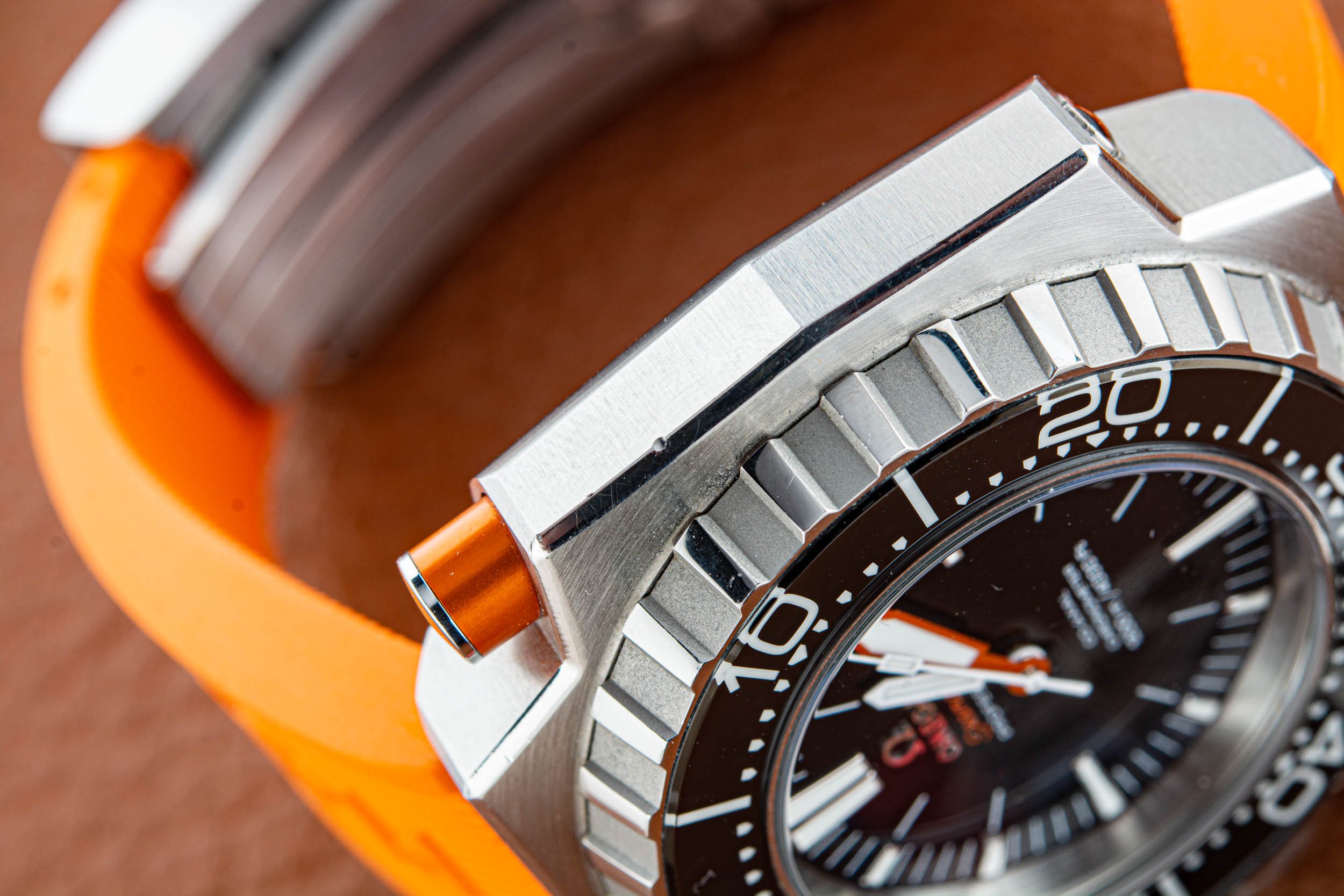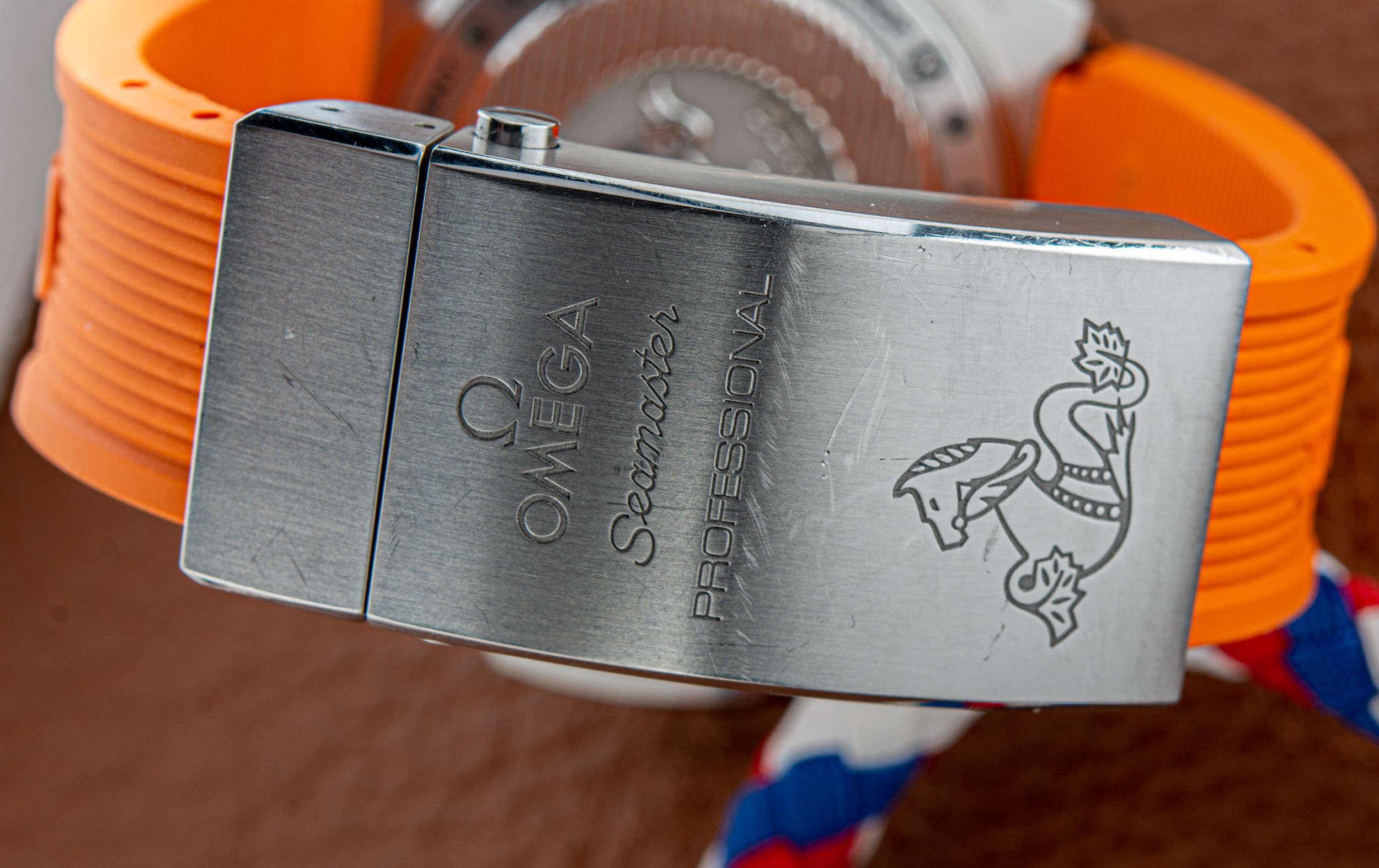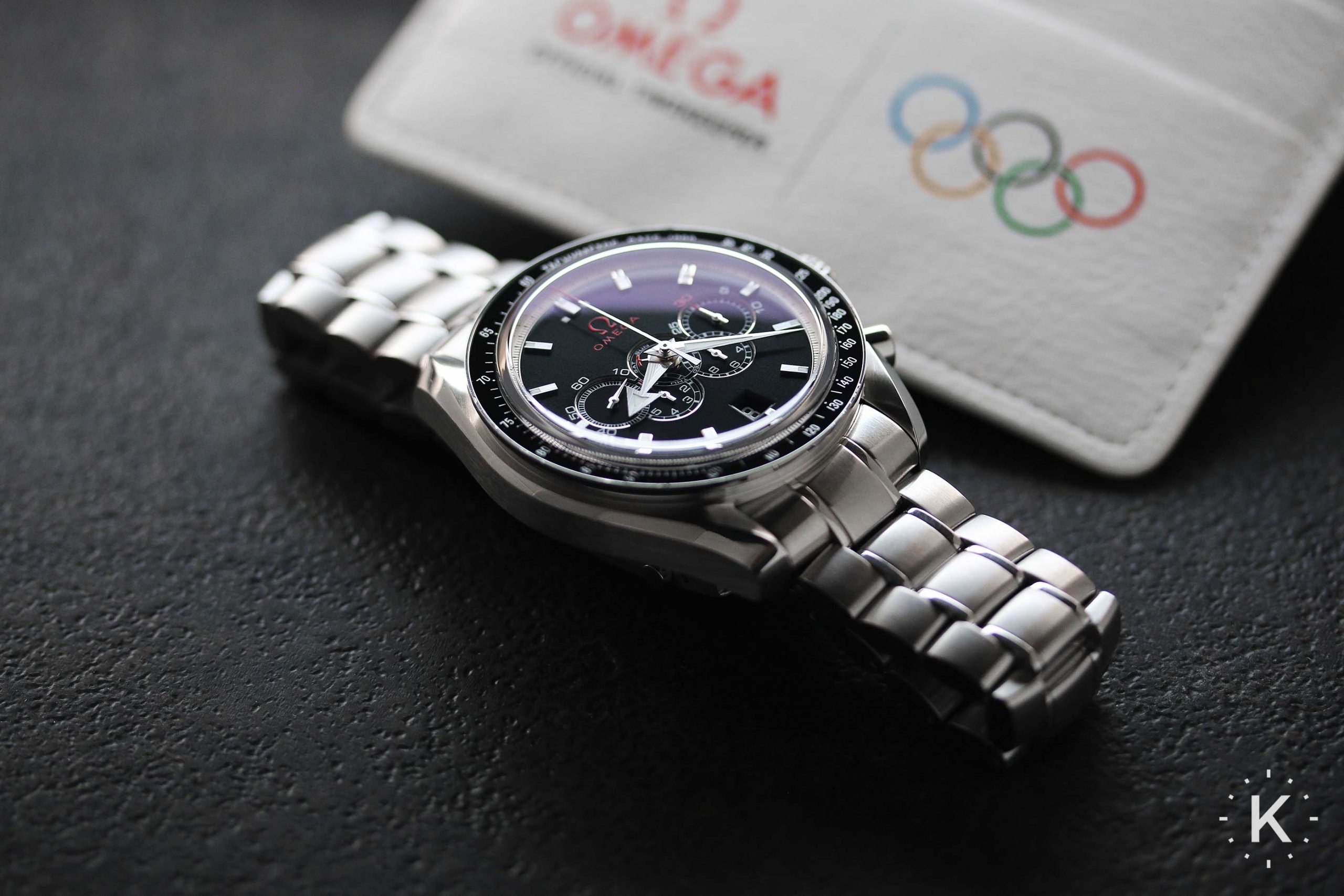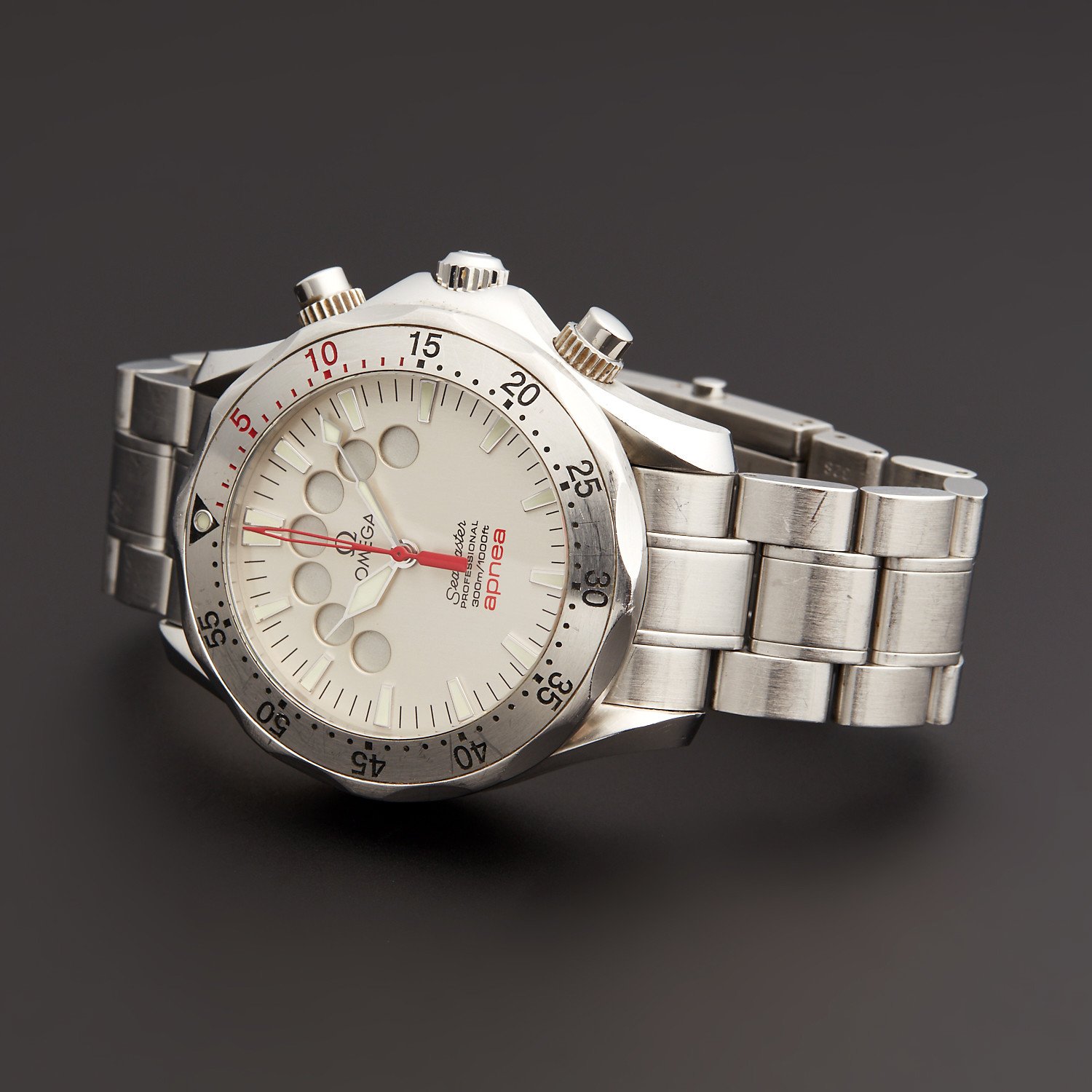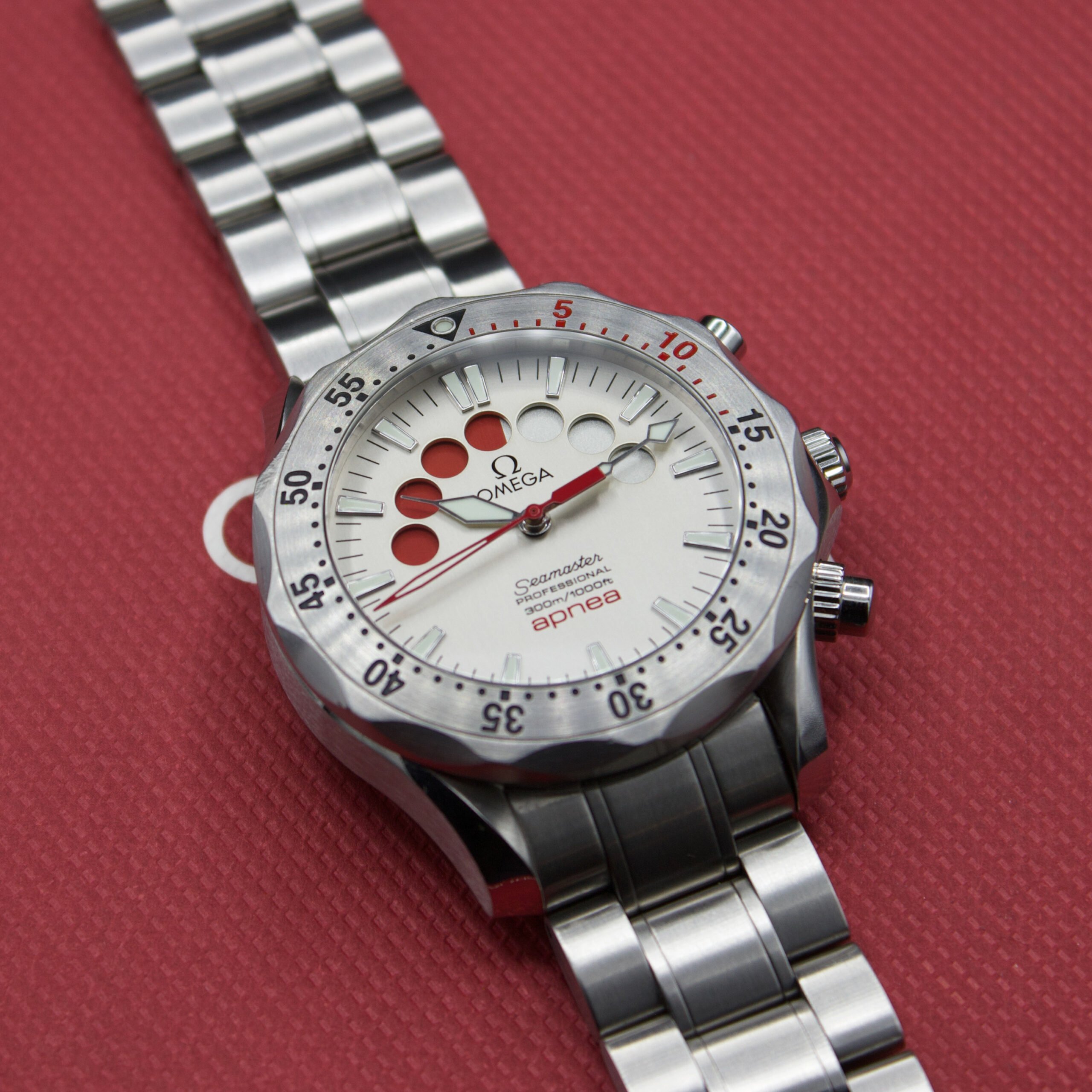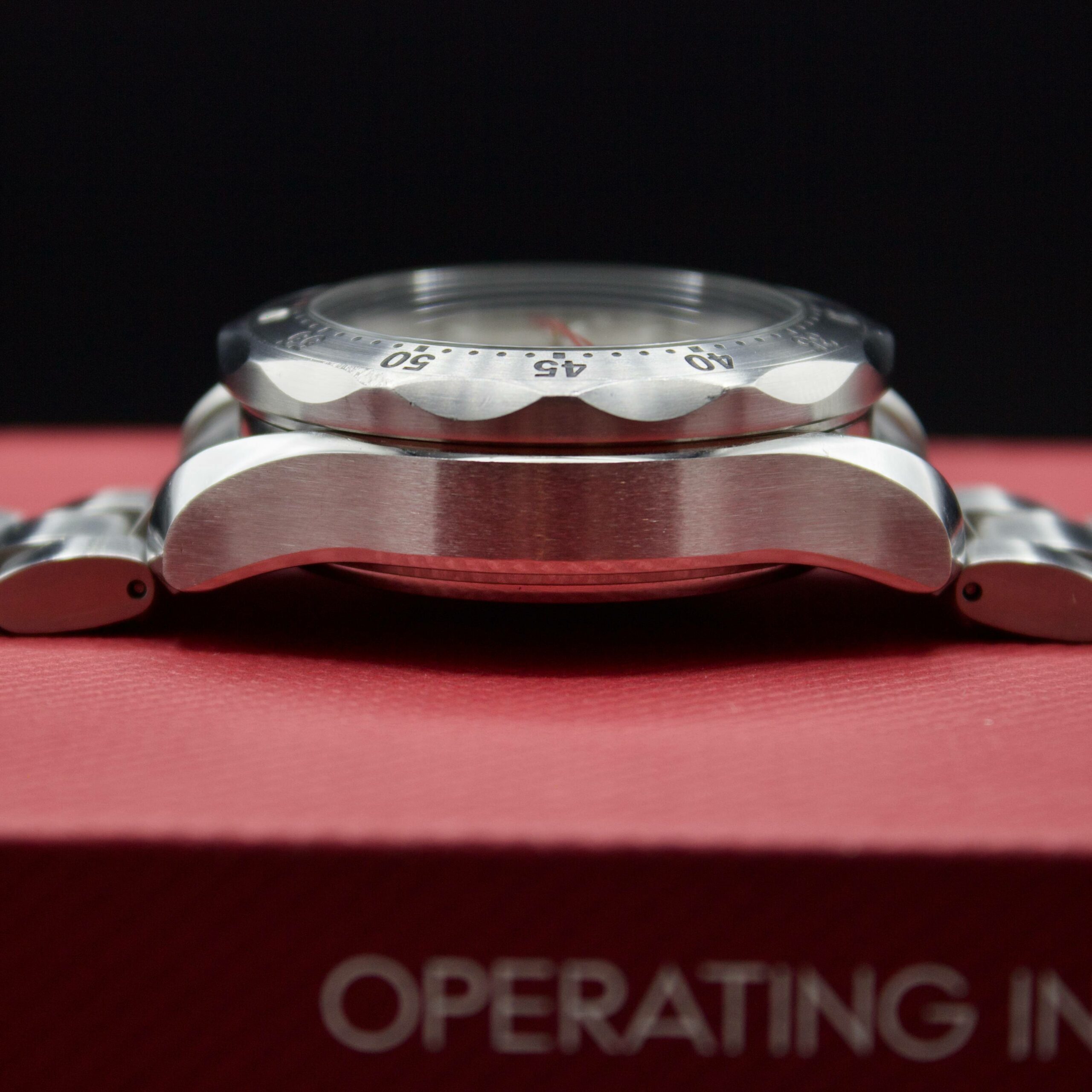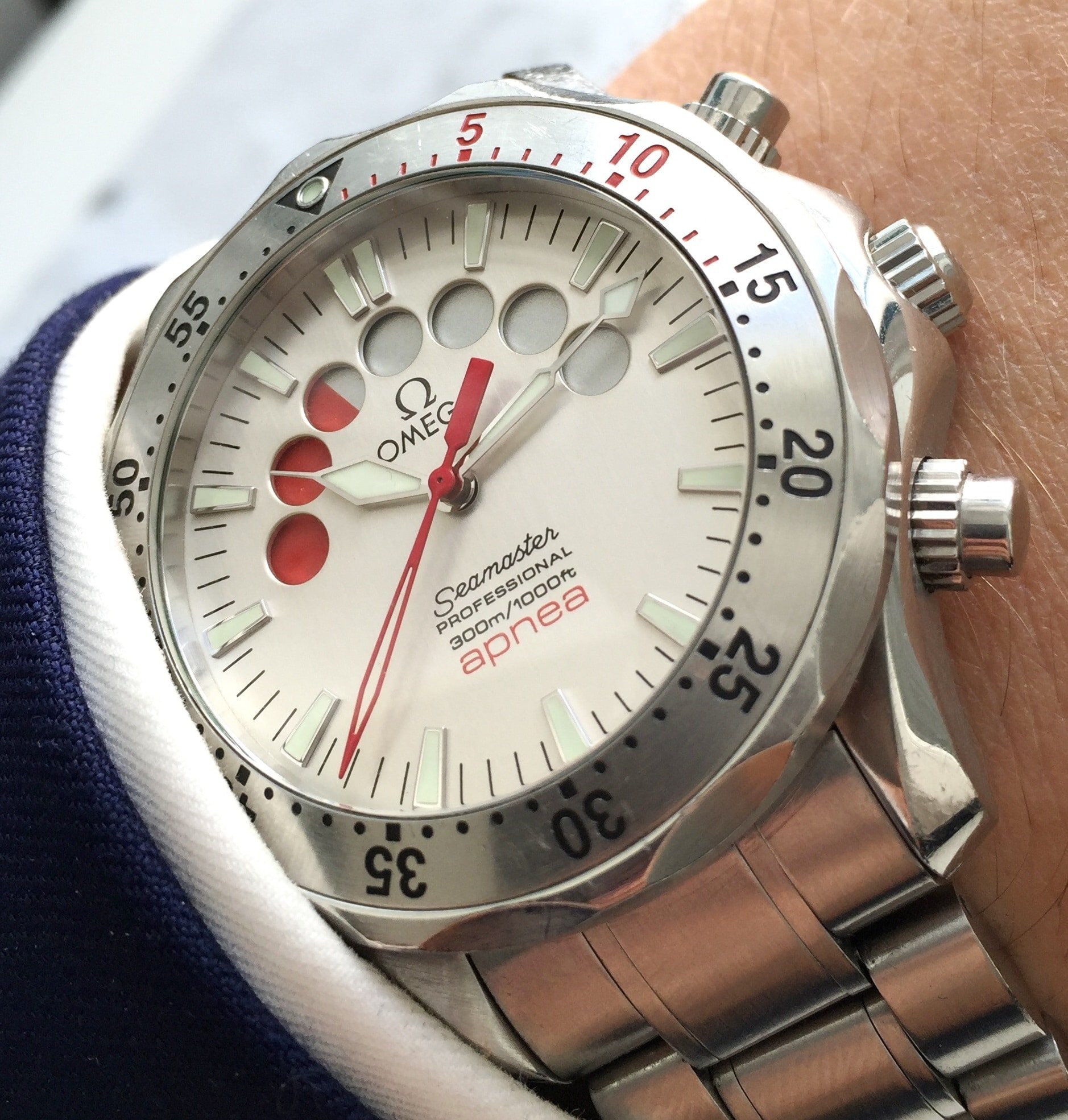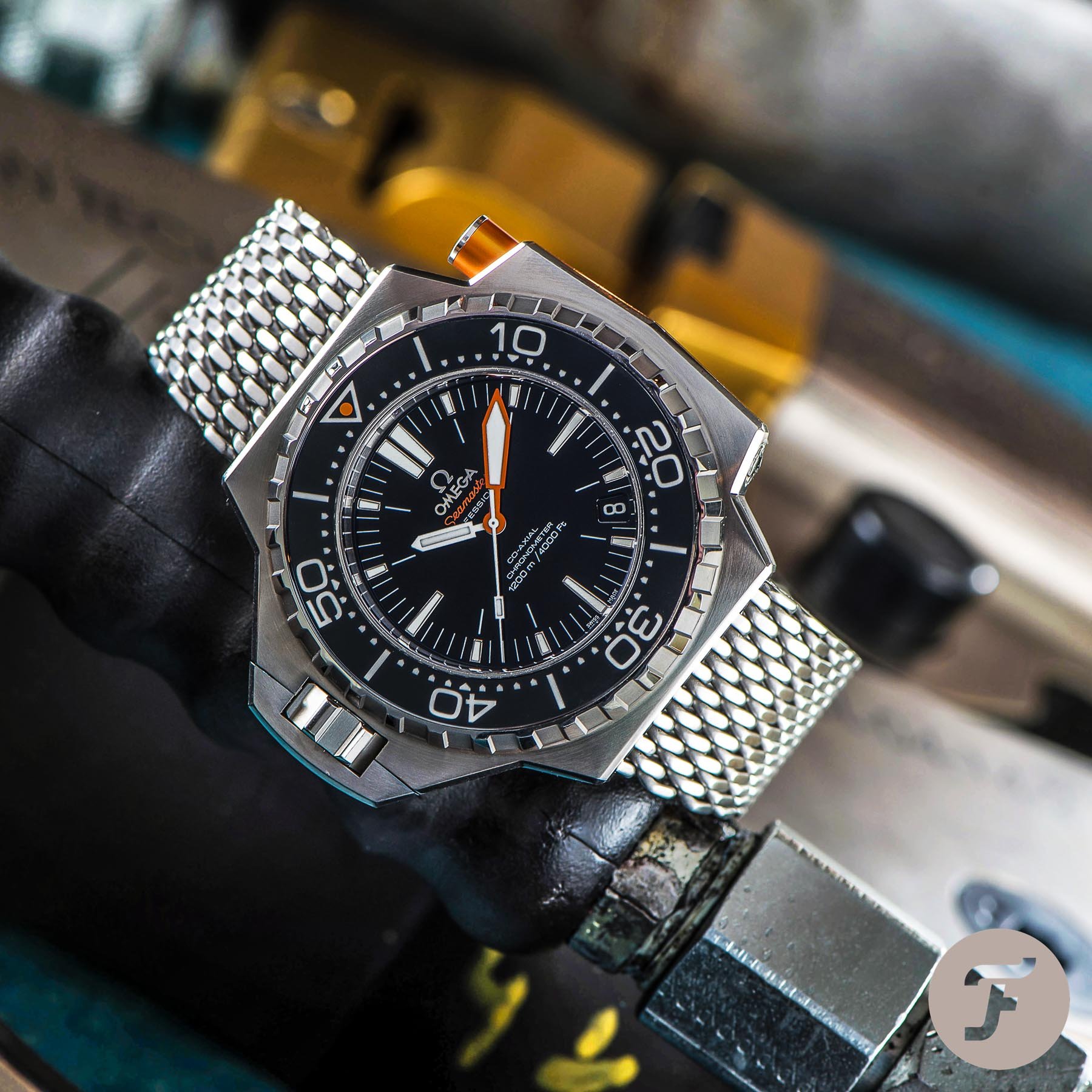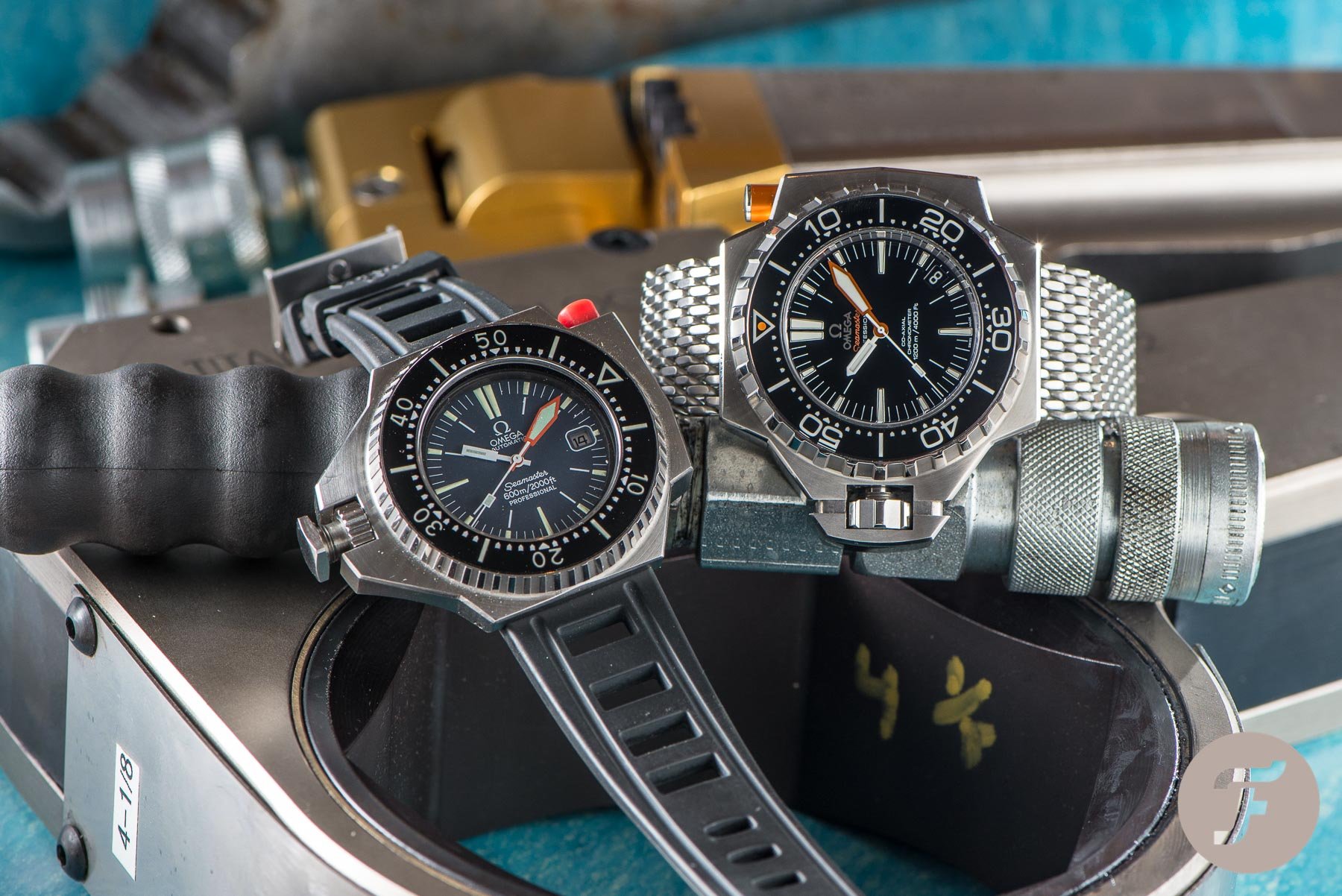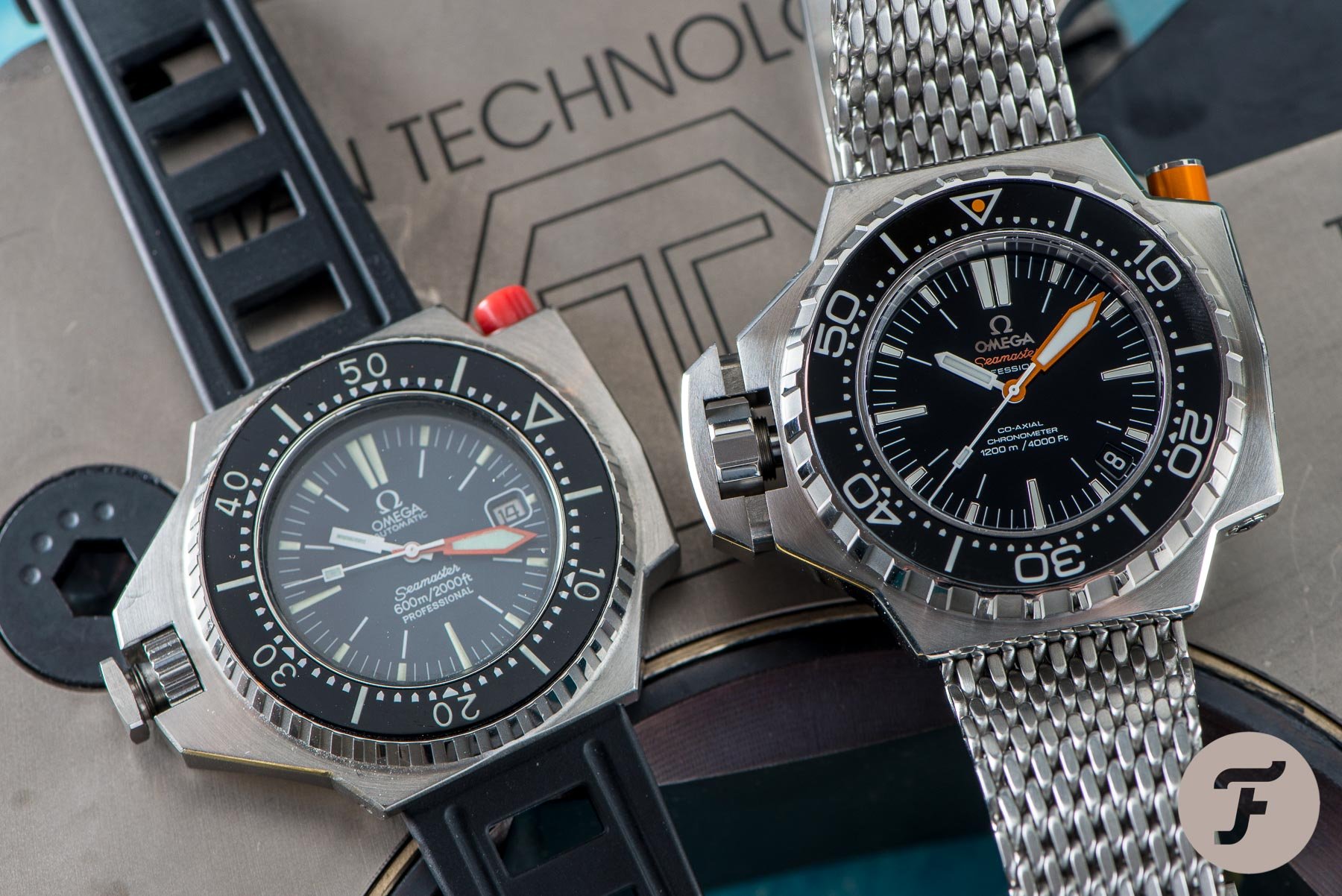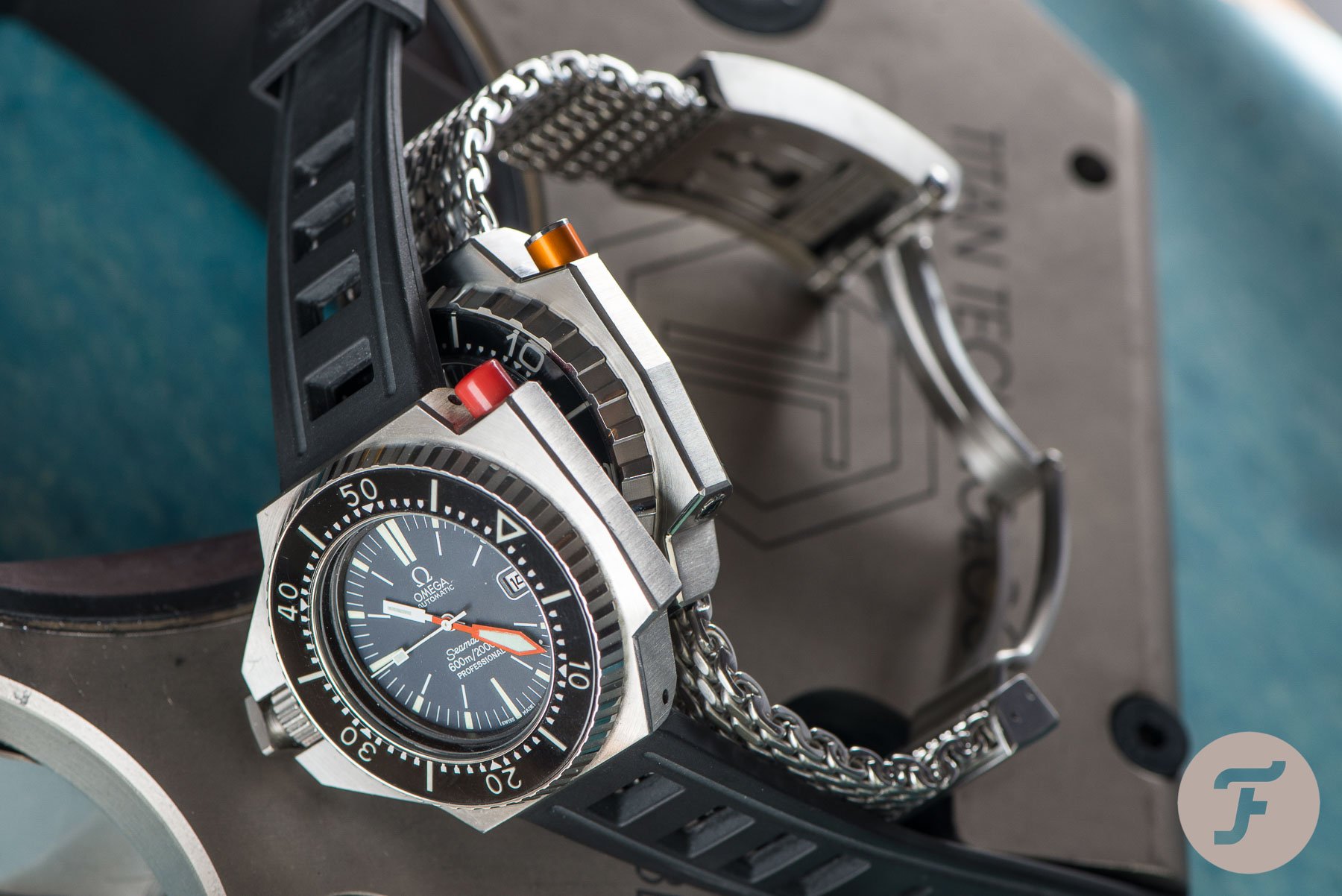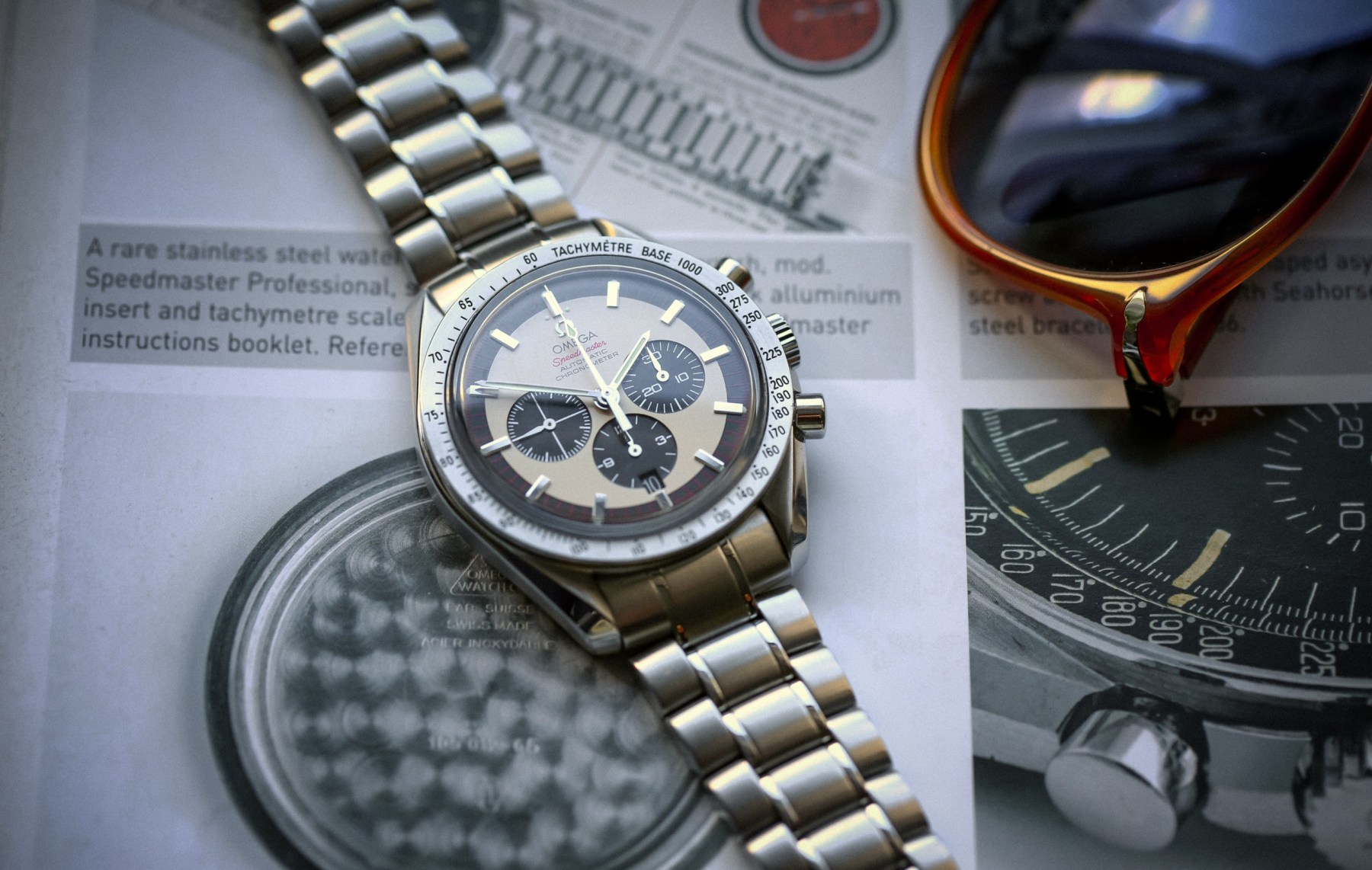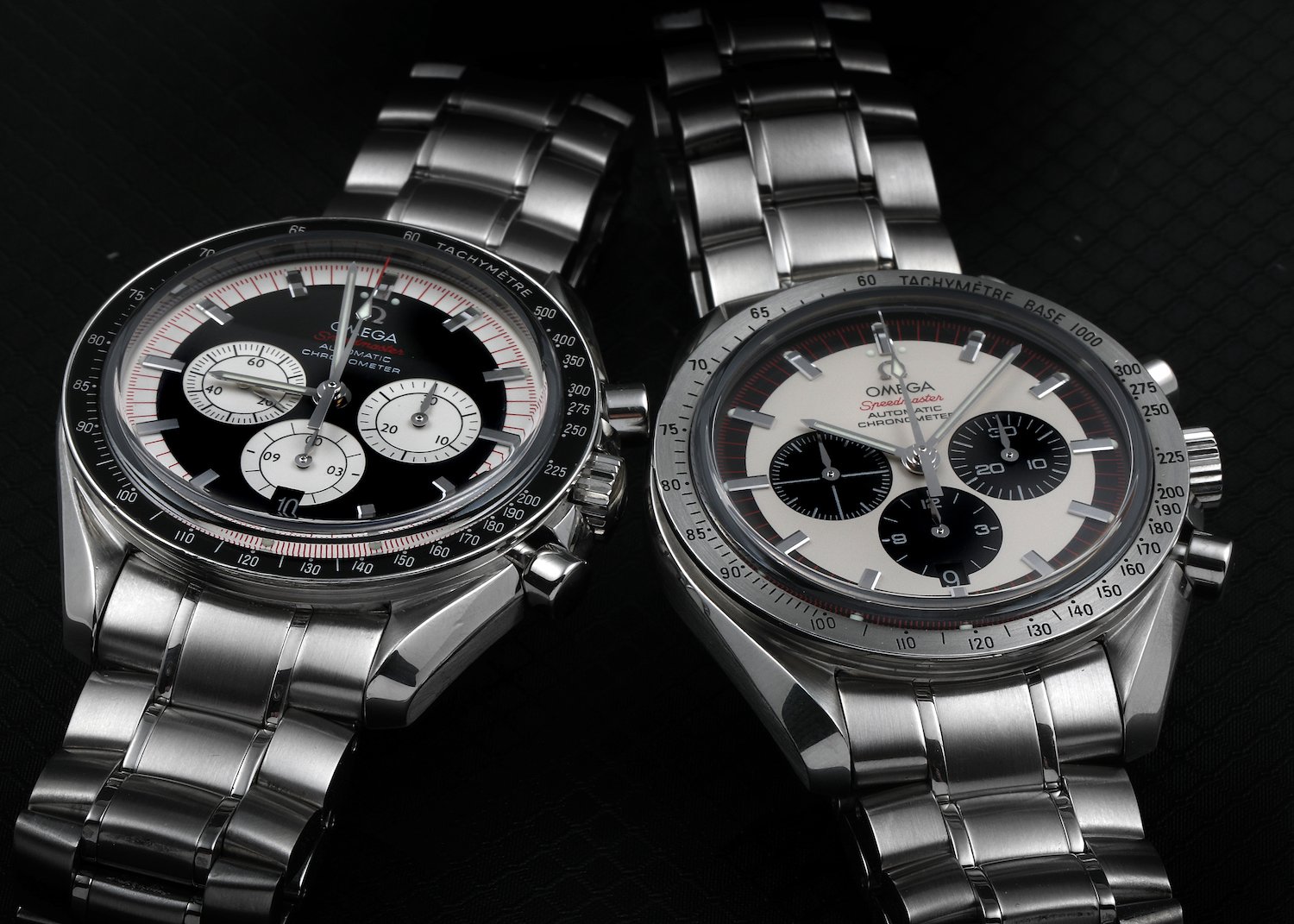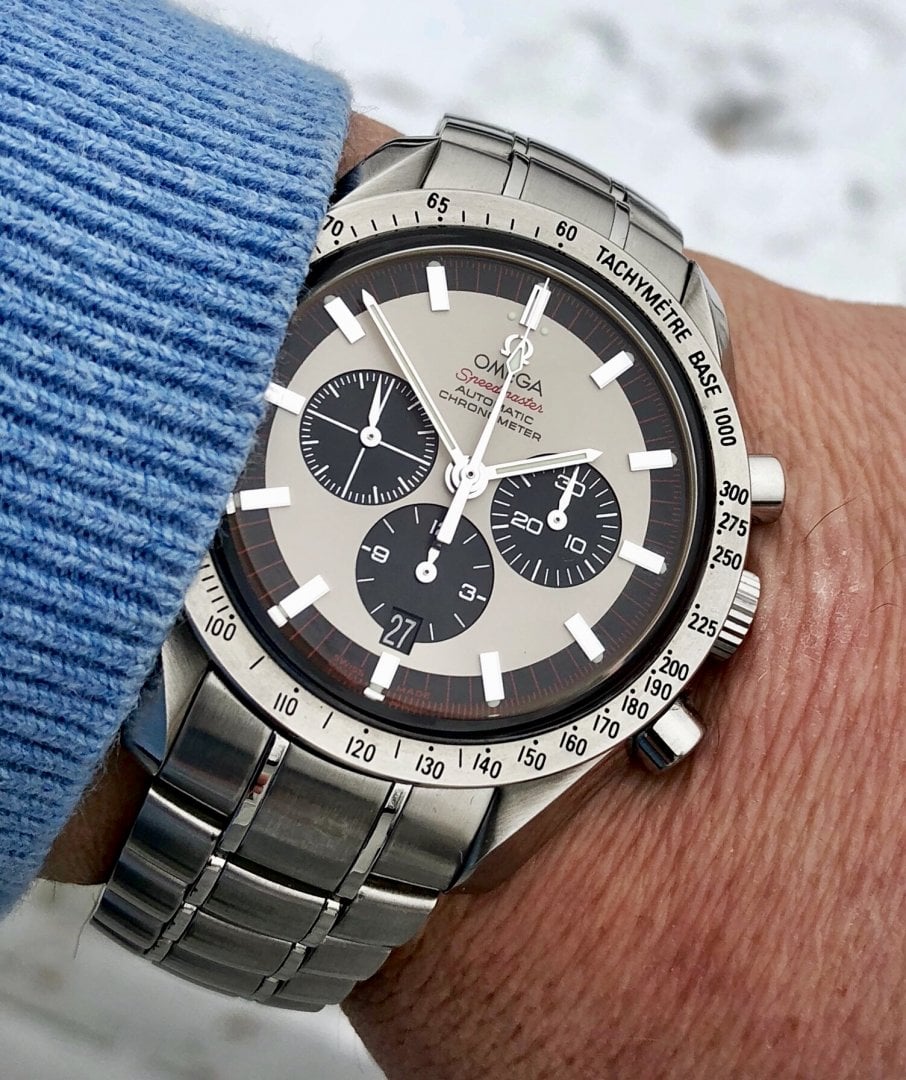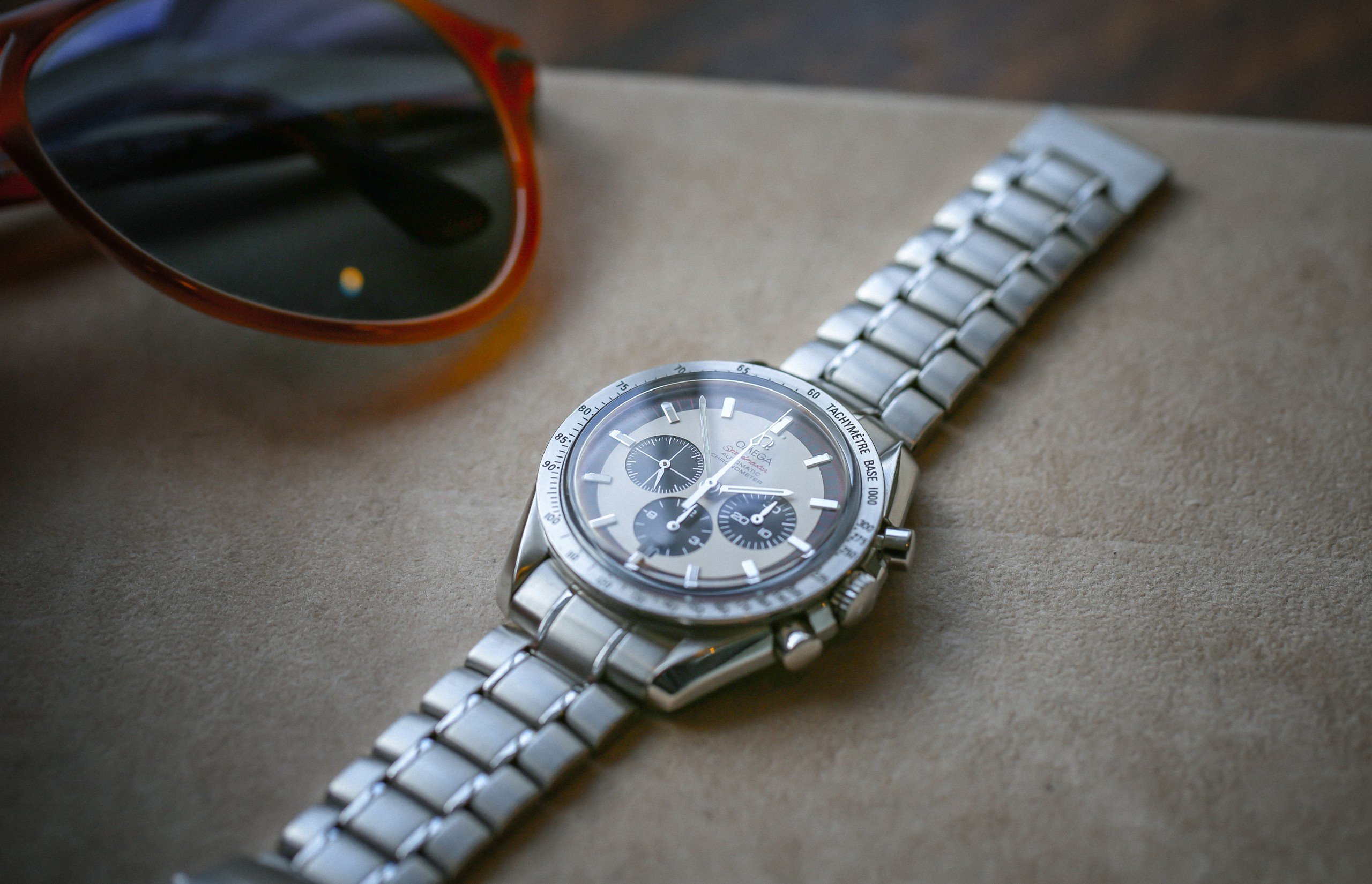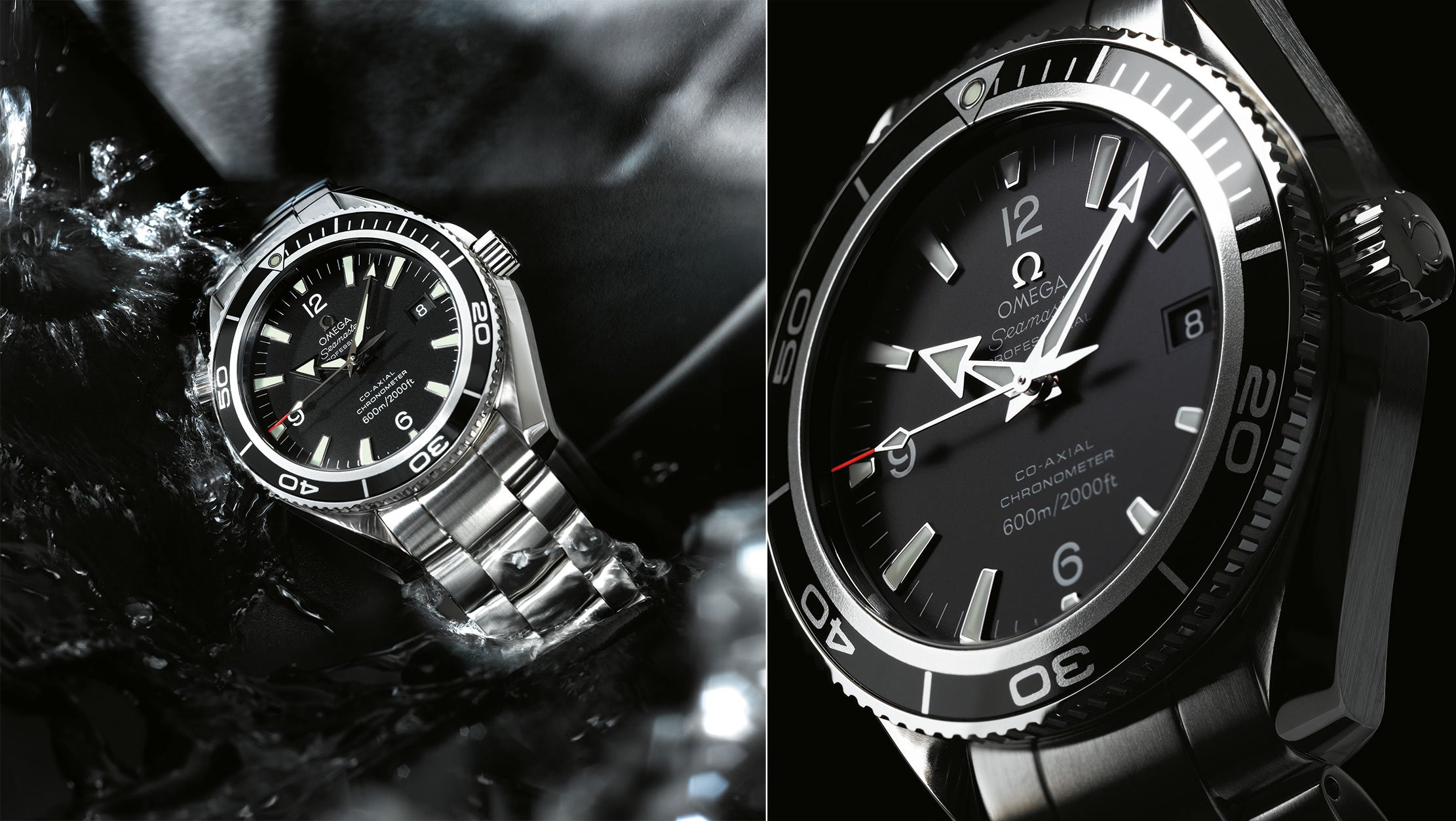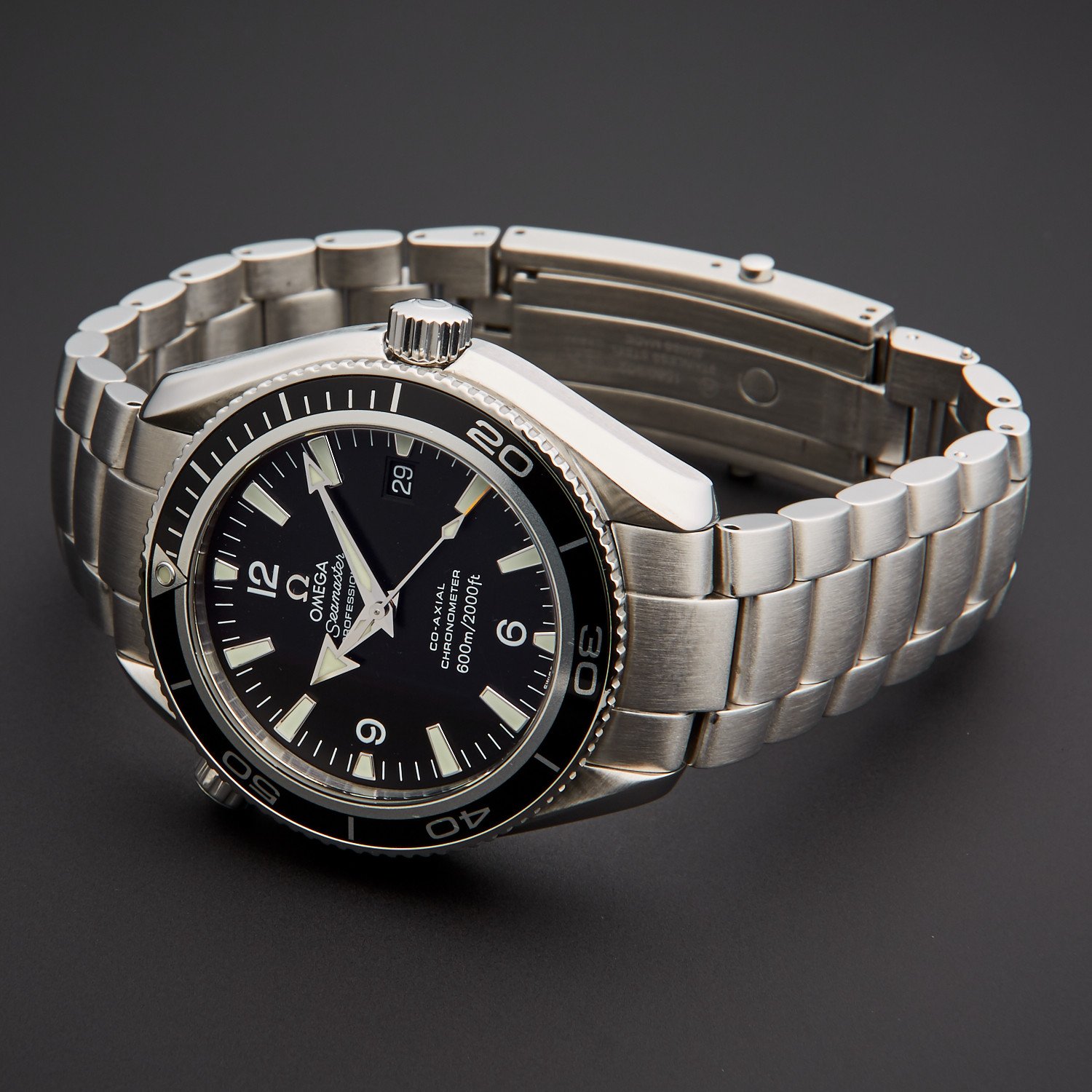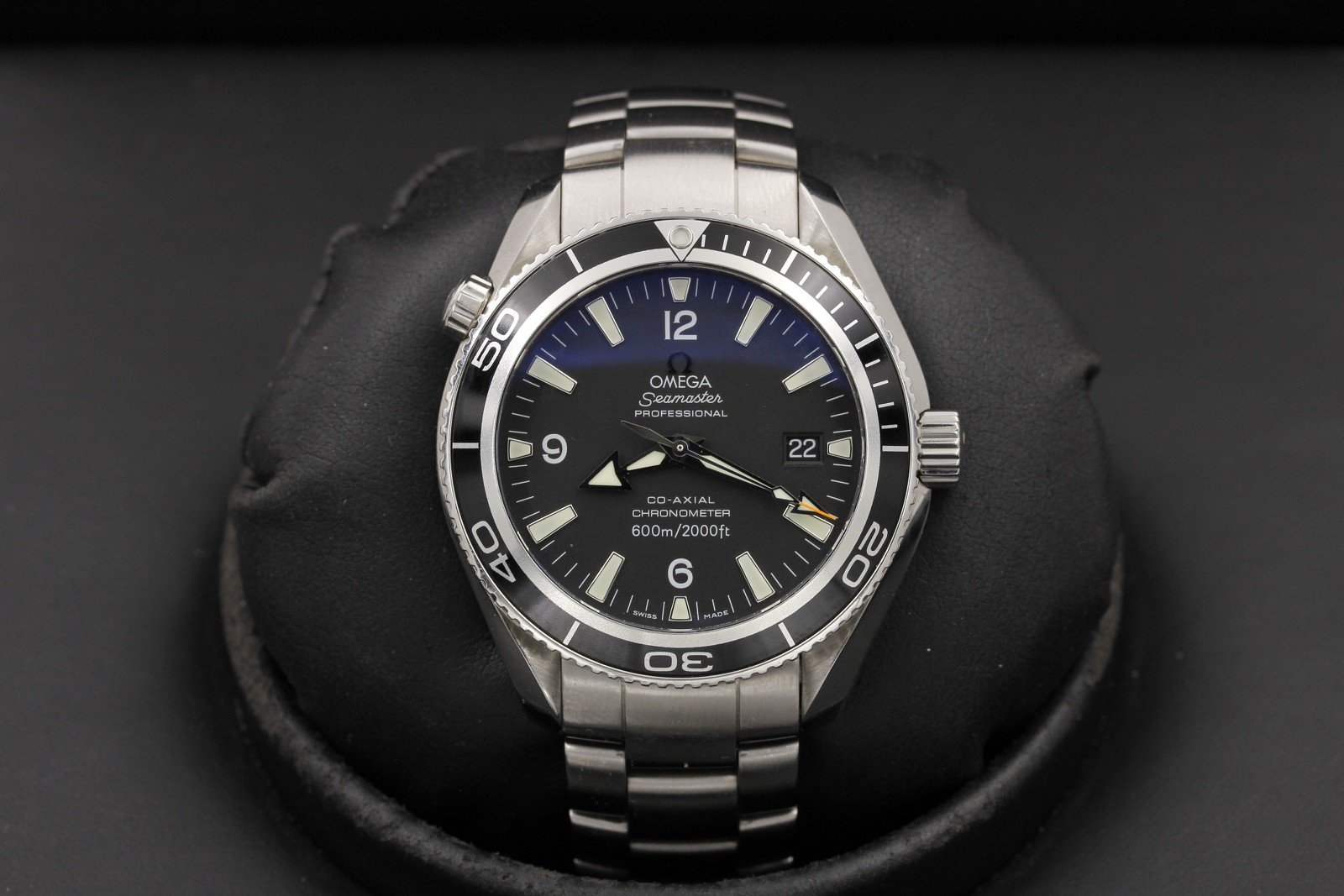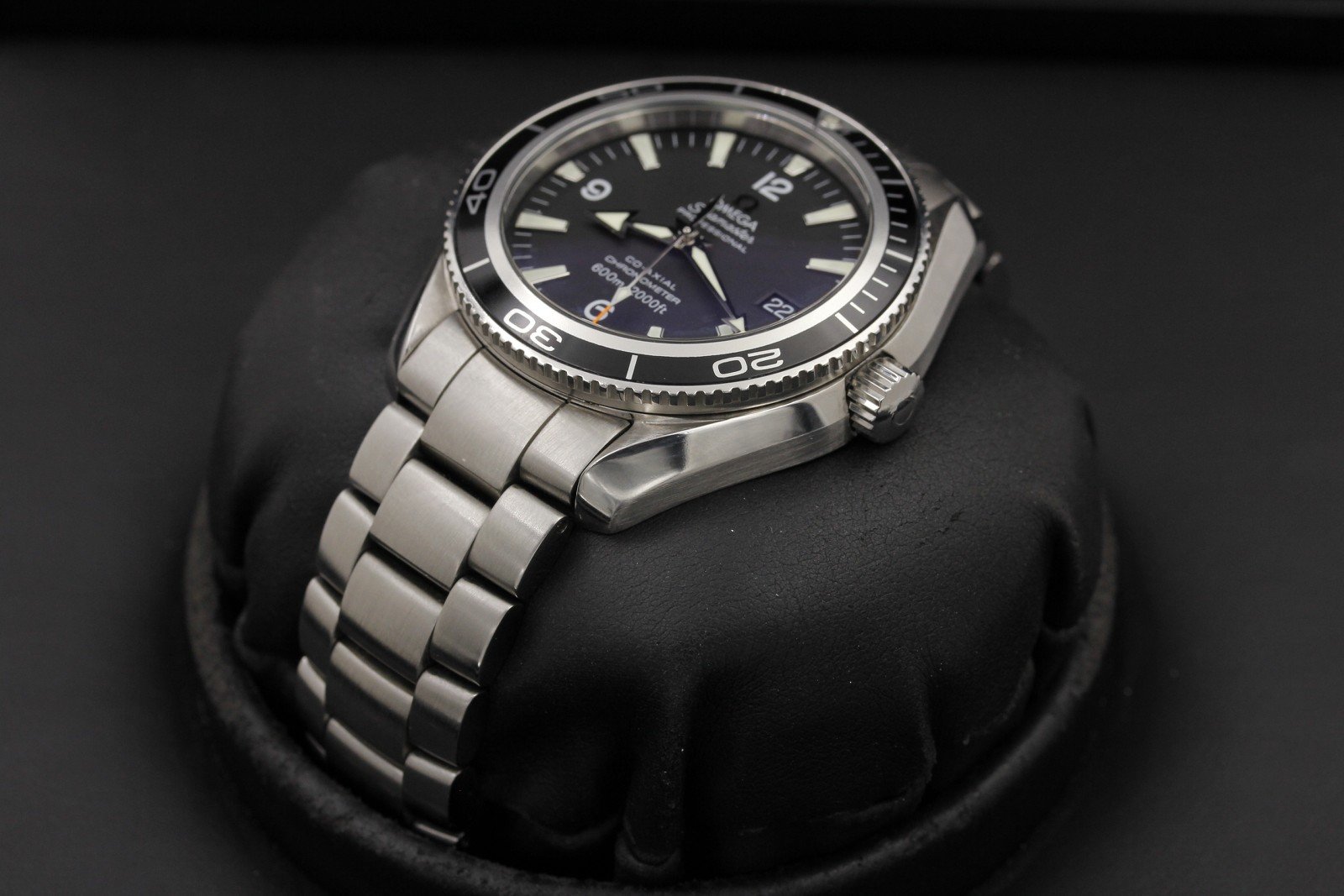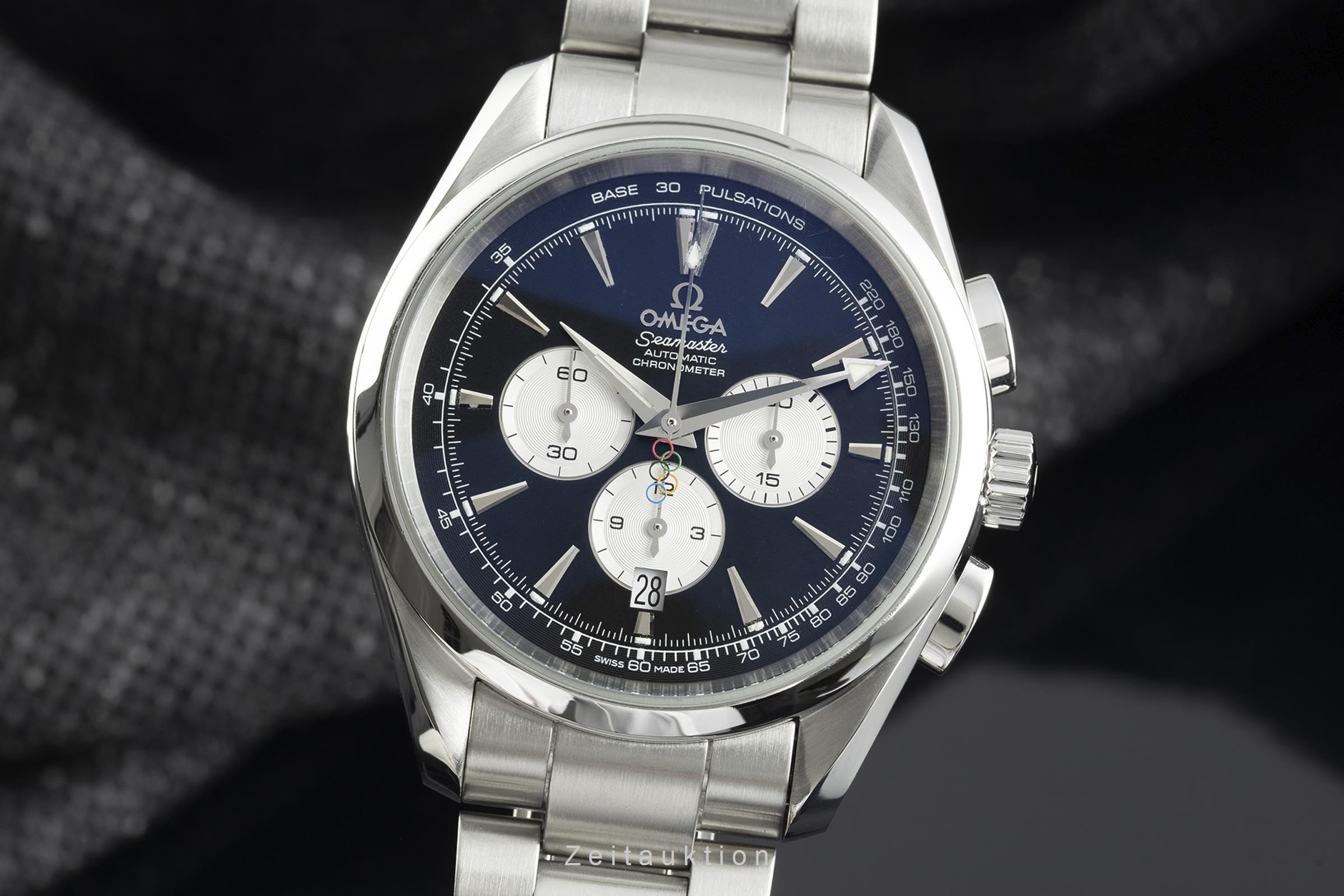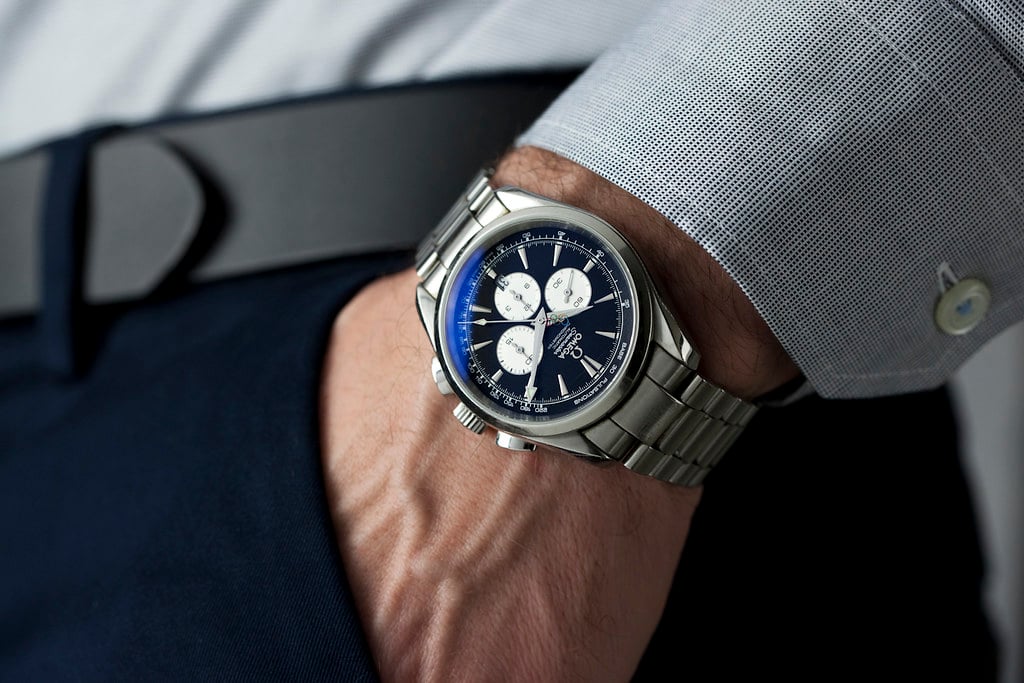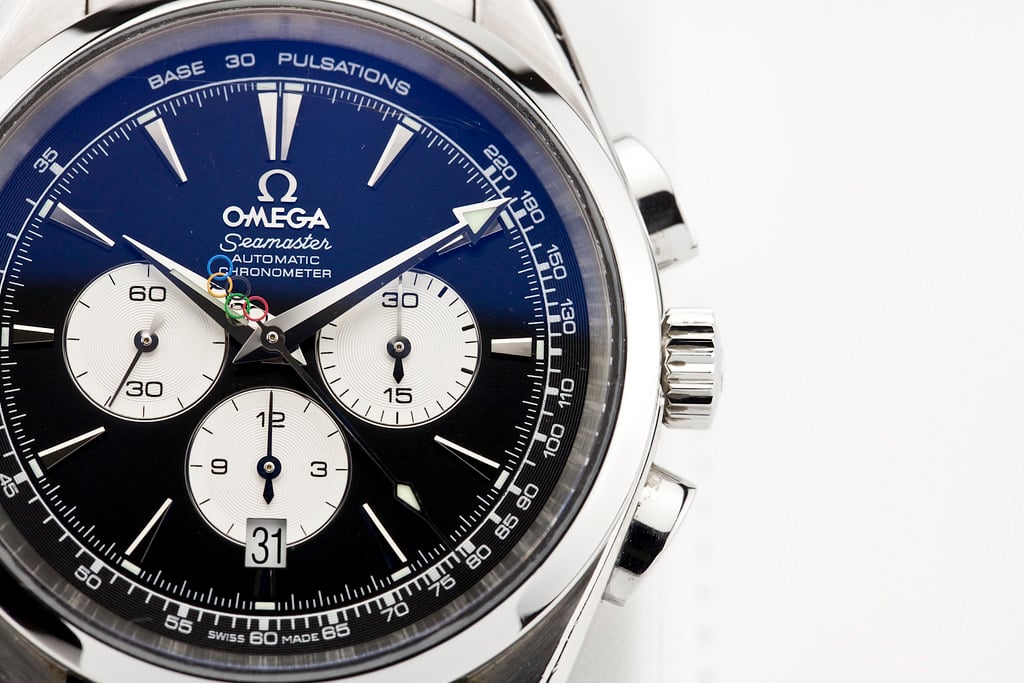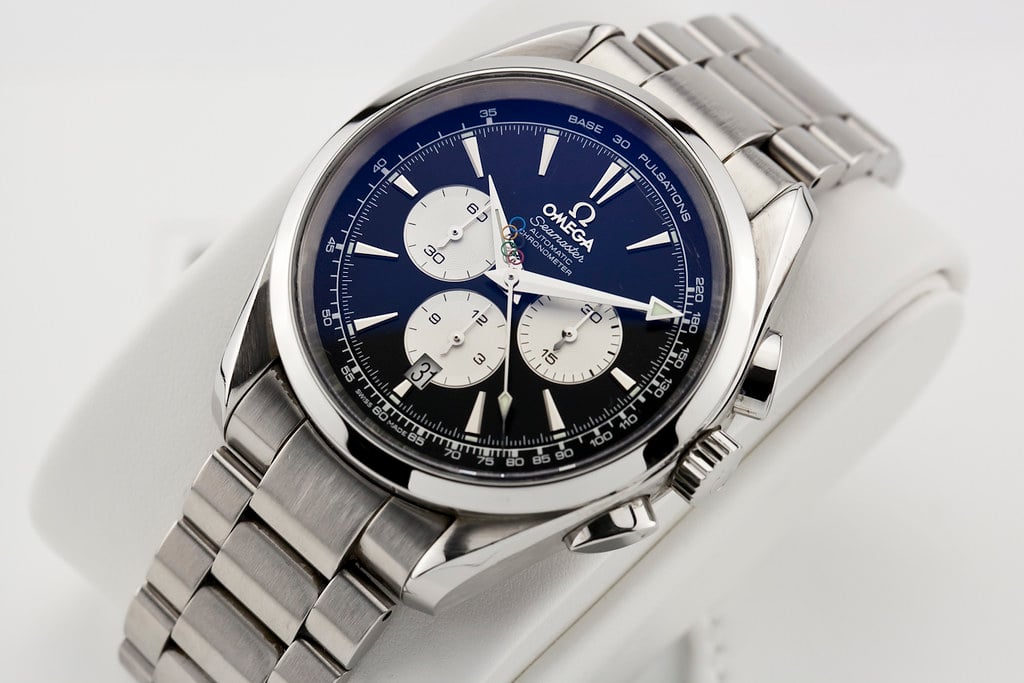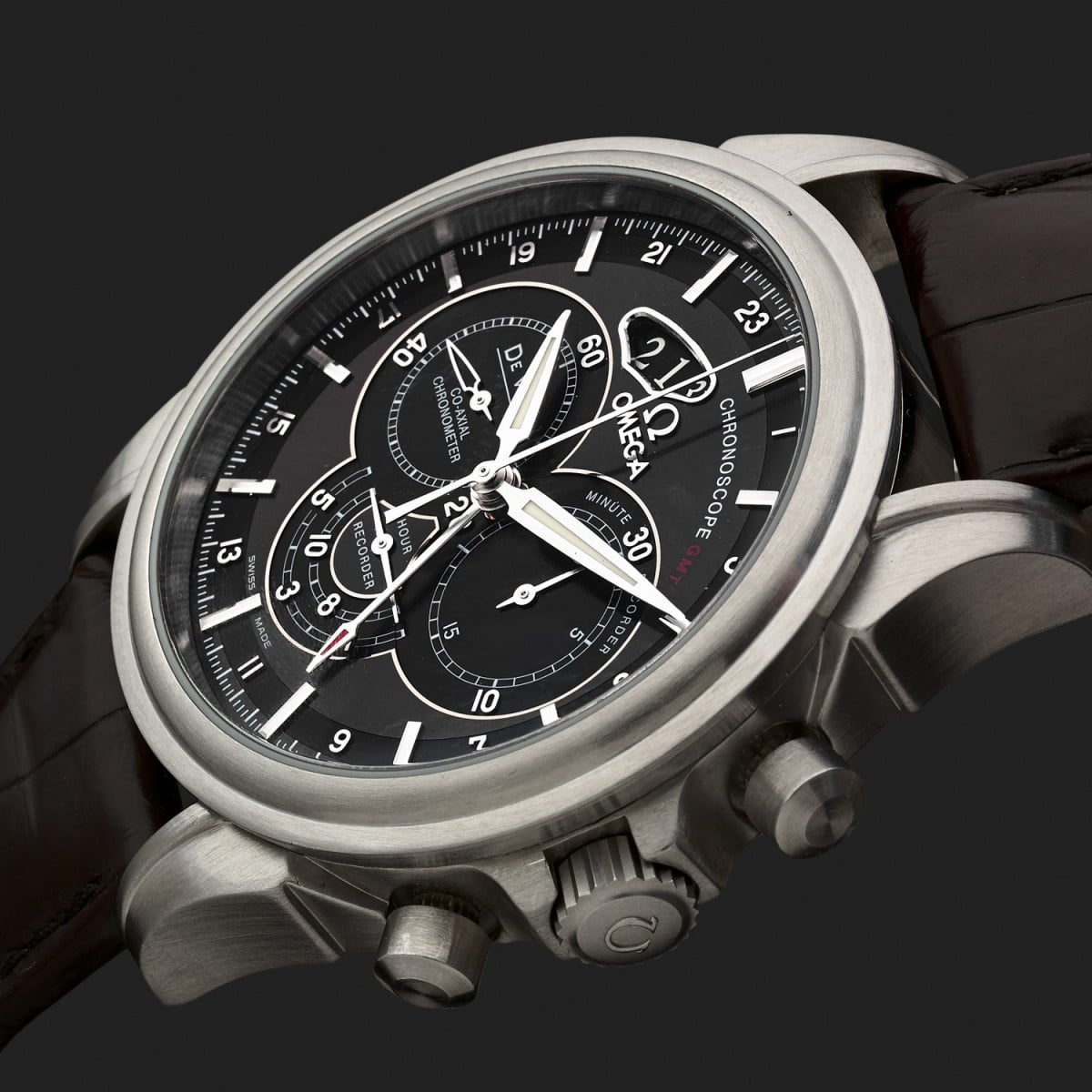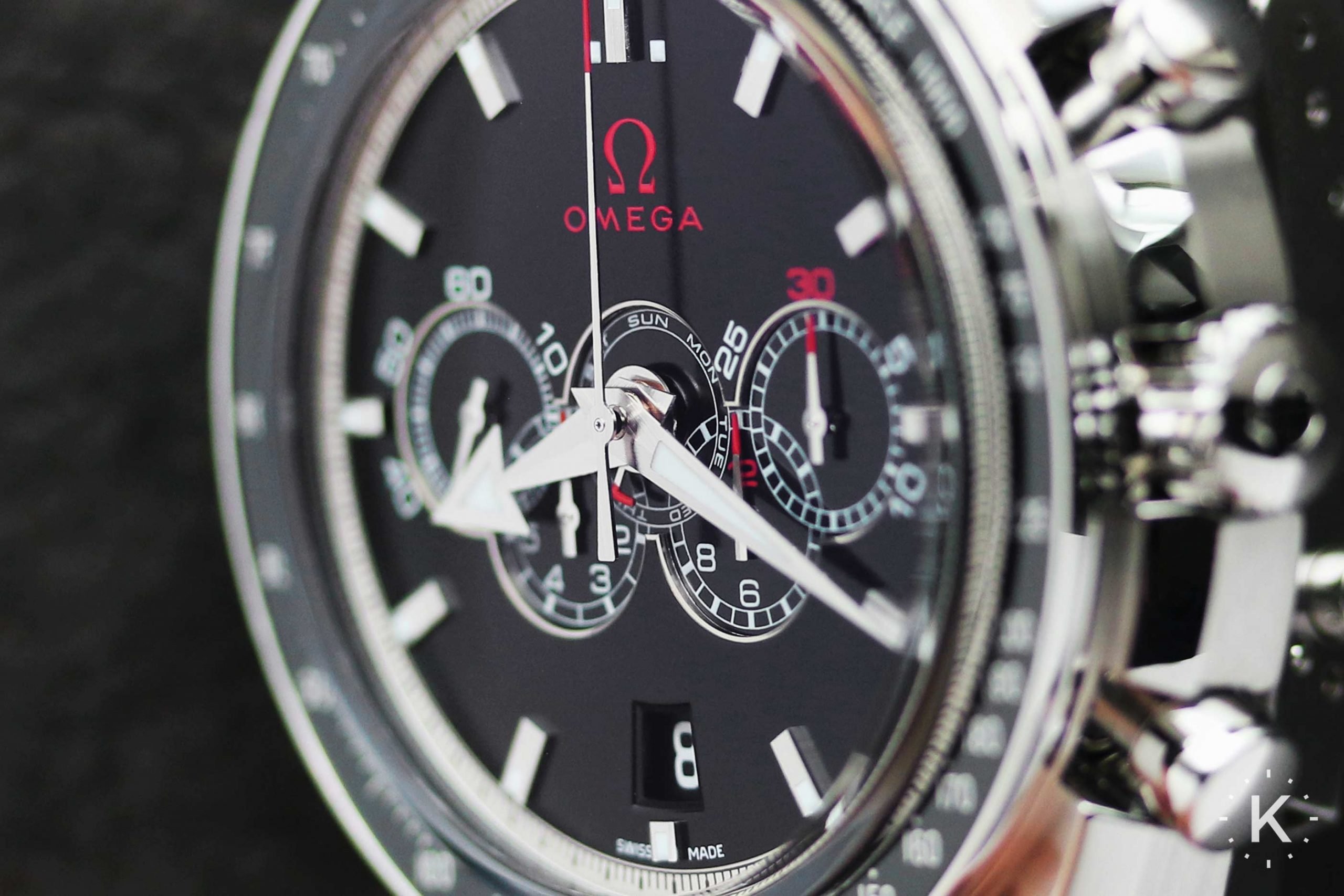Buying Guide: The Best Omega Watches From The 2000s
We like to talk about vintage watches a lot within the Fratello team. Though most of what we write about is largely focused on the most recent releases and developments, for many of us, a lot of the fun can be found in the sometimes weird and often wonderful world of vintage watches. It’s a world full of history, remarkable watches, incredible stories, and quirky details. It inspired us to come up with a series of articles focusing on the best watches per decade from a select group of brands. Some of them are priceless, some of them are still affordable. In this installment, we will take a look at the best Omega watches from the 2000s.
By the turn of the millennium, Switzerland had proudly reclaimed its title as the watchmaking capital of the world. The 2000s, in many ways, formed the blueprint for the watch industry as we know it today. By the time the 2000s came around, mechanical watches were incredibly popular. Instead of just selling instruments that told the time, the major brands became cornerstones in the world of luxury goods, and the watch industry was thriving.
We saw brands being bought by conglomerates that turned into the luxury powerhouses they are today. But the 2000s was also the decade that saw the rise of independent brands alongside the industry’s big players. Small brands made it their goal to push the envelope of watchmaking in terms of design and technological developments. In the early 2000s, we also saw watches increase in size like never before. Panerai, Audemars Piguet, Hublot, and IWC enjoyed a great rise in popularity with their oversized watches. They will all be part of this last decade of the series, the best watches of the 2000s.
Omega in the 2000s
With an overall rise in popularity in mechanical watches, Omega was bound to become one of the biggest watch brands in the world. The brand introduced its first model with a co-axial escapement in 1999, which I wrote about in the previous Omega installment in the series with the best Omega watches from the 1990s. In the 2000s, Omega introduced co-axial technology to a wide range of models. As a result, the brand upped its game regarding movements accuracy and reliability. On top of that, the De Ville Tourbillon models from the 1990s showed an incredible level of in-house watchmaking skill, something we see continued with a string of brilliant releases in the 2000s.
Alongside the huge step up in product development, Omega also continued its partnerships with some of the world’s greatest franchises. The 2000s saw the introduction of a new James Bond, with Pierce Brosnan making way for Daniel Craig. It created great new momentum for Omega as Craig wore multiple Omega models in both Casino Royale and Quantum of Solace. Additionally, the partnerships with the Olympic Games and NASA ensured that Omega grew into one of the most prominent luxury brands in the world. Considering the number of watches that Omega released, a selection of five seems a bit ridiculous. But let’s take a look at five watches that stood out for different reasons.
The Entry Point — Omega Seamaster Professional 300M Apnea ref. 2595.30.00
The first watch on the list is an oddball watch that I have loved ever since it came out in 2003. The Omega Seamaster Professional 300M Apnea ref. 2595.30.00 is a tribute to the legendary French freediver Jacques Mayol, also known as “Dolphin Man.” Mayol and Omega had a long-lasting partnership that resulted in a series of Seamaster 120M watches in the 1980s. I picked the 37mm “Maxi” version of that series for the best Omega watches from the 1980s. What is so special about this Seamaster Apnea from 2003 is that Mayol helped develop the watch. Unfortunately, he never got to see the fruits of his labor, as he passed away in 2001. It turned the watch into a tribute to Mayol when it came out two years after.
The 41.5mm stainless steel Seamaster Apnea is characterized by its Seamaster presence but completely out-of-the-ordinary dial design and complication. The case is chunky at 16.5mm thick and has a 49mm lug-to-lug and a 22mm lug width. The watch came with either a black dial or a silver dial. Usually, I would pick a black dial, but for this watch specifically, the only way to go is the silver, slightly textured dial. It’s easier on the eye in combination with the red accents. Additionally, the dial features applied hour markers, compared to printed markers on the regular models.
The Seamaster Apnea also came with the choice of a rubber strap or a toned-down version of what many consider the era’s “Speedmaster bracelet”. This bracelet was different from the fancier bracelet found on models like the Brosnan Bond-era Seamasters, but Omega did use it on several Seamaster models. While the Seamaster Apnea does looks good on different straps, the modern styling of the case in combination with the bracelet is stunning.
A freediver complication
As the Seamaster Apnea was part of the Seamaster Chronograph range, it features a chronograph function that is operated with the pushers as usual. It features a unidirectional diving bezel and model-unique hands, as you can see. Despite their look, they are not screw-down pushers, so you have instant access to the chronograph function. So what is this freediving complication that Omega and Mayol worked on? As you can see, the dial has seven apertures that turn from silver to red if the chronograph is running. After every minute, one of the apertures turns red, and after a total of seven minutes, they start to change back to silver. So it creates a timer that indicates 14 minutes on the dial, the time of a dive that only the best freedivers can pull off.
To realize this complication, Omega created the automatic caliber 3601. It was based on an ETA 2892-A2 that Omega heavily modified. The movement operates at 28,800vph and has 39 jewels with a 44-hour power reserve. Omega placed the specially developed chronograph module on top of the movement to equip it with the freediving complication. The added module is the reason for the thicker case. Overall, the Seamaster Apnea is a fascinating watch both technically and aesthetically. I love the looks of this watch and would gladly add one to my collection at some point. Finding one is not tough, although there are never many on offer. Expect to see prices between €2,5K and €3K for one, which is not a lot of money for such a special piece commemorating such a special human being.
My pick — Omega Seamaster Professional Ploprof 1200M ref. 224.30.55.21.01.001
Next up is my pick, and there was not a single shred of doubt about what watch it should be. The Omega Seamaster Professional Ploprof 1200M ref. 224.30.55.21.01.001 is currently second on my list of watches to purchase right after the current-generation Speedmaster. I love the Ploprof that Omega unveiled in 2009 as the follow-up to the legendary Seamaster 600 “PloProf” from the 1970s. While I usually do not prefer a re-issue over the original, the 2009 version is a lot better, in my opinion, than the original. Don’t get me wrong, I love both, and as a fan of the PloProf, I think you should own both to understand its magic. But what Omega pulled off with the modern Ploprof was quite impressive.
I wrote a longer article about my love for the Ploprof in which you can read why I find it such a fascinating watch. For this article, I will keep it short. First off, there is not a single thing that I do not like about this watch, which is unique, as I always find details that I don’t like. The old PloProf had details that I didn’t like, for instance, the chopped-off look of the hour hand and a mix of orange and red accents. But the 2009 Ploprof solves all that by introducing a new hour hand, as well as a matching orange color for the minute hand and the bezel-unlocking button. Even the integration of the date window was done better. It is neatly tucked away between 4 and 5 o’clock, with a black date wheel so it doesn’t stand out. It makes for an even better design than the original already was.
The perfect design for the task
It’s a design that starts with the case, though. The extravagant stainless steel case design might not make sense at first with its asymmetrical shape and bonkers 55mm × 48mm dimensions. But look again, and you will find that the base of the case is very symmetrical indeed. The functional elements that have been added to the watch make it look asymmetrical and weird. But it’s weird for exactly the right reasons. There is the integrated screw-down crown on the left. On the right, you will find the extra shape containing the orange pusher that unlocks the rotating diving bezel. The watch came with the choice of an orange rubber strap or stainless steel mesh bracelet. While you definitely need both, the mesh bracelet is the one to go for when purchasing the watch. Try to get the rubber strap as an extra to change things up.
Inside the case, Omega equipped its top-of-the-line professional diving watch with caliber 8500. It’s a self-winding movement with a co-axial escapement that operates at 25,200vph and has 60 hours of power reserve. I could go on forever about the Ploprof, but in essence, the watch is a 279g chunk of steel that combines everything I want from a watch. The combination of the highest level of functionality, the incredible story, and stylish good looks make this a beater of which you can be proud. These things make the Omega Seamaster Ploprof 1200M one of my favorite watches ever. Expect to pay roughly between €7,5K and €11K for one. I say that’s the best money you could ever spend on a watch!
Money is no object #1 — Omega Speedmaster “The Legend” ref. 3559.32.00
Next up is an iconic Speedmaster that is not part of the iconic Speedmaster Professional Moonwatch story. As you probably know, I try to keep away from the Speedmasters in this series, as we have our Speedy Tuesday series of articles for that. But there are some exceptions outside of the scope of the Moonwatch that deserve our attention indeed. The Omega Speedmaster “The Legend” ref. 3559.32.00 was part of the series of Speedmaster watches that Omega created for legendary race car driver Michael Schumacher. The series started when Schumacher became an Omega ambassador in 1996 with two iconic Speedmasters characterized by their red and yellow aesthetic. The colors were a result of Schumacher’s first year at Ferrari. After that, a string of different Schumacher models followed.
Seven years after joining Omega, Schumacher won his sixth F1 championship in 2003. To celebrate the fact, Omega released the most iconic of the Schumacher models in 2004. The ref. 3559.32.00 with its steel bezel and Paul Newman-inspired dial design has become legendary amongst fans of Speedmasters. Sure it “borrows” its dial design from the Rolex Daytona. Still, in my opinion, it shows the great versatility of the Speedmaster design, rather than putting you off with its familiar panda-dial aesthetic. The watch was produced in a limited run of 6,000 pieces that are all individually numbered. Almost two decades later, it still looks as fresh as it did at the time of introduction.
Different Speedmaster Legend models
In 2005, Omega released another series of three Schumacher Legend watches with the same aesthetic as my pick for this list. The first is the panda-dial version ref. 3506.31.00 that looks a lot like the limited edition model from 2004. The main difference was that the sub-dials were not fully black, but had black borders surrounding their stark silver centers. The second model is the reverse panda dial ref. 3507.51.00 that features the familiar black Speedmaster bezel. The third is a red-dial version with black registers with ref. 3506.61.00. These were regular-production models that were made until 2009 and often get mixed up with the limited edition model from 2004.
The watch featured a familiar 42mm stainless steel Speedmaster case and came on a stainless steel bracelet. Inside the “Sixth Title Edition,” Omega used caliber 3301. This automatic movement is based on an F. Piguet (caliber 1285) column-wheel chronograph movement. The movement operates at 28,800vph, has 33 jewels, and comes with a 52-hour power reserve. It features a date indication at 6 o’clock, and Omega also had it chronometer-certified. I love the looks of this Speedmaster a lot. I think it’s one of the best non-Moonwatch Speedmaster models ever released. Finding one of the 6,000 pieces is not impossible, but they do not show up for sale in big numbers. Expect to see prices roughly between €5K and €6K for one. The three later models are a little cheaper and great options that are not as hard to get.
Money is no object #2 — Omega Seamaster Planet Ocean 600M ref. 2201.50.00
This list would not be complete without a Seamaster Planet Ocean. On top of that, Daniel Craig also deserves a spot on this list. What better way to include both than choosing one of the Planet Ocean models that Craig wore in the Bond films? The obvious choice would be to go for the Seamaster Planet Ocean ref. 2900.50.91 that Craig wore in Casino Royale. However, I find that too big at a whopping 45.5mm and 17mm thick. Also, I’m not too fond of the style of the rubber strap. It’s why I picked the Seamaster Planet Ocean 600M ref. 2201.50.00 that he wore in Quantum of Solace. It is probably the only element of Quantum of Solace that can top Casino Royale because it is the worst of the Daniel Craig-era Bond films. But that’s a rant for another time.
The Seamaster Planet Ocean 600M ref. 2201.50.00 is significantly smaller at 42mm, making it easier to wear. Additionally, Craig wore it on a stainless steel bracelet that made the watch look a lot better than on the rubber strap. As a quick reminder, let’s take a look at the history of the Planet Ocean series. It was introduced in 2005 as a series of modern divers that came in 42mm and the 45.5mm size that I mentioned earlier. The design of the first-generation Planet Ocean was inspired by the Seamaster 300 ref. 165.024 from the 1960s. For reference, it’s the Seamaster that Omega re-introduced in a modern version to its collection in 2014, and the one you all know as the previous generation of the Seamaster 300 collection.
A perfect daily wearer
The most eye-catching model of the Planet Ocean line has always been the one with the orange bezel. This color was chosen because it is the last color that divers can see as they descend underwater, and a bonus is that it looks very nice. The 42mm case is 14.5mm thick and water-resistant to 600 meters. It features the characteristic helium escape valve at 10 o’clock. It’s an element that a lot of people don’t like. Personally, I do not have a problem with it at all. Inside the case, Omega used its co-axial Caliber 2500. This automatic movement operates at 25,200vph and has 27 jewels and 48 hours of power reserve.
Finding a Planet Ocean 600M ref. 2201.50.00 is not that hard. They were pretty popular modern divers that served as perfect daily beaters. Expect to see prices for one roughly between €3K and €4.5K depending on condition and whether the box and papers are included. Fifteen years after their introduction, the first-generation Planet Ocean models still look very up-to-date, and they could still serve as a great daily wearer. But whatever you do, please ignore that horrendous 45.5mm Quantum of Solace limited edition. That is even worse than the film itself. Stick to what Bond himself was wearing in the film, and you will have a great watch.
Money is no object #3 — Omega Seamaster Aqua Terra “-188 Days” Beijing 2008 ref. 221.10.42.40.01.001
The last watch on this list is a special one. Some of you might know that one of my all-time favorite Omega watches is the De Ville Chronograph ref. 145.018 from the late 1960s. Fratello’s own Mike owns one, and it is a joy to see. The elegant overall shape combined with the colorful sub-dials and a great movement creates one of the many Omega icons of the past. Mike and I have also said several times that it would be great to see Omega develop a modern version of that historical icon. During my search for this list, I stumbled upon a watch that reminds me of the aesthetic of the De Ville Chronograph. The Omega Seamaster Aqua Terra Chronograph Beijing 2008 ref. 221.10.42.40.01.001 has quite a bit of that great charm that makes the De Ville Chronograph such a classic.
The Aqua Terra Chronograph “-188 Days” was released 188 days before the start of the Beijing Olympics in 2008. Versions were available both in full stainless steel and two-tone red gold and steel. The stainless steel version is my pick for this list. These watches were part of a large collection of pieces that Omega released for the Beijing Olympics in 2008. One of them was the remarkable Omega Speedmaster 5-Counters Chronograph with five registers arranged the same way as the Olympic rings. But back to our story. Two years before the Olympic Games in Beijing, the Winter Games were held in Torino. For the Torino Games, Omega released an Aqua Terra Chronograph that featured a white dial with blue hands and markers and a red pulsation scale. It is essentially the same watch as the Beijing 2008 version, but the colors make a great difference.
The Olympic Rings counterweight
The Aqua Terra Chronograph “-188 Days” features a 42.2mm stainless steel case. On the case back, you will find the Beijing 2008 Olympic logo engraved together with the limited edition number out of the 2008 pieces that Omega produced. But the front is the striking part for me. The watch features a reverse panda dial in black and white. The dial features a pulsation scale in white and applied polished hour markers. The only hint of color comes in the Olympic rings that serve as a counterweight for the central chronograph seconds hand. I love the subtlety of that hint of color, but honestly, I could have done without it. Not as part of the Olympic limited editions, of course, but overall, I think I’d prefer if it weren’t there.
The watch comes with a domed sapphire crystal and is water-resistant to 150 meters. Inside the stainless steel case, Omega equipped the watch with its caliber 3301. It’s the same self-winding column-wheel chronograph that powers the Speedmaster Schumacher that we discussed earlier. Overall, I love seeing this version of the Aqua Terra Chronograph. It is one of the best-looking watches the brand produced in the late 2000s, in my opinion. While I’d much prefer a version without the Olympic rings, I also realize that the idea of seeing a regular modern version of the iconic De Ville Chronograph ref. 145.018 could still be in the books. Finding a Seamaster Aqua Terra Chronograph Beijing 2008 is possible. Expect to see prices ranging from roughly €4K to €6K for this great timepiece.
Final Thoughts
The 2000s saw a boom in the popularity of watchmaking overall and for Omega specifically. The brand made some of the most iconic watches of the era and continued the partnerships that are still going strong today. I can only highlight a couple of the brand’s creations, so you should definitely check out more on your own. Some honorable mentions are the amazing De Ville Chronoscope, the De Ville Hour Vision Annual Calendar, and the stunning pieces from the highly underappreciated Omega Museum Collection. And please remember that, in this series of articles, I stay away from the many Speedmaster models as we have our Speedy Tuesday articles to cover them.
As always in this series of articles, I cannot stress enough to do your research if you want to buy a vintage watch. On top of being crucial in not ending up disappointed with your purchase, it is also a lot of fun. Doing research and finding out about the watches you love is often the first connection you will make to a specific piece. Try to get your hands on the books Omega — A Journey Through Time and Moonwatch Only. Contacting a vintage expert will also help out a lot. It’s a great way to learn more about a watch and get to know some fantastic people along the way.
Next week, we will take a look at some of the best Seiko watches from the 2000s, so keep an eye out for that. In the meantime, let us know what your favorite Omega from the 2000s is in the comment section below!

